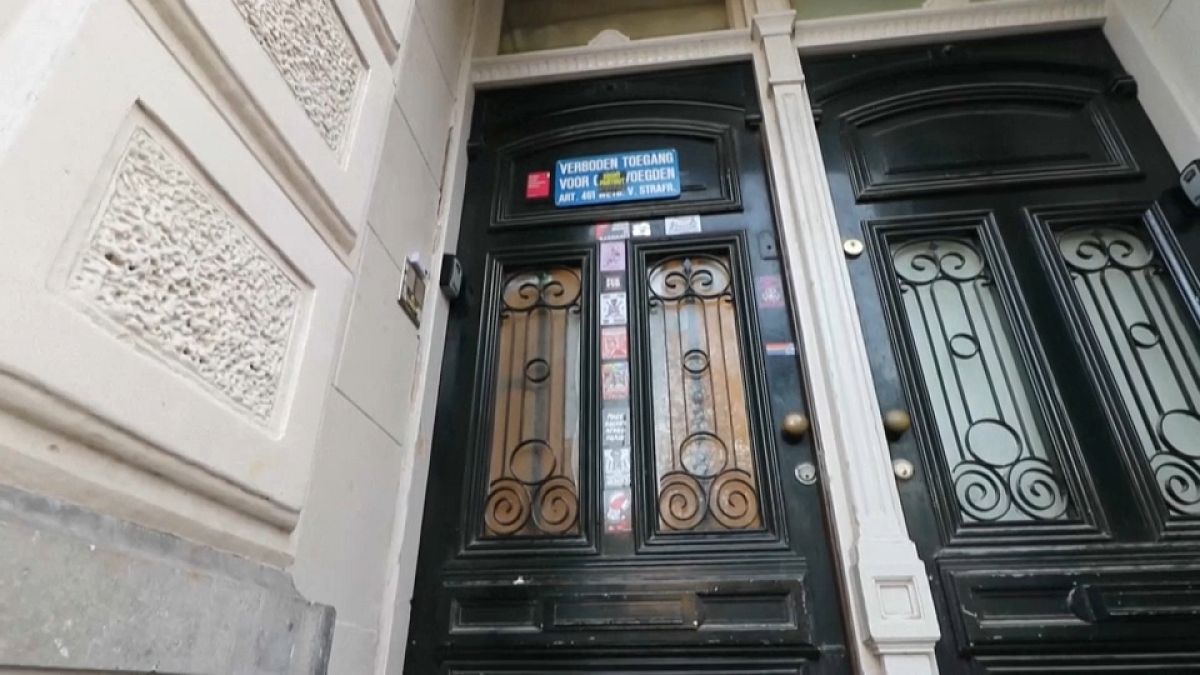Arkady Volozh, who co-founded search engine giant Yandex, is currently subject to sanctions by the European Union
Since last month a group of squatters in Amsterdam has occupied a luxurious five-storey building belonging to Arkady Volozh, the sanctioned co-founder of Russian search engine giant Yandex.
A Dutch court has now authorised the squatters to stay, after they argued that the house was currently empty and that he planned to rent or sell it in breach of EU sanctions, instead of living there himself.
"Without the sanctions, the squatters would certainly have lost," Heleen over de Linden, one of their lawyers said. "So, this is a very special case, yes."
The squatters have made their message very clear to the rest of the world with three banners draped outside the apartment block.
The first referred to the close relationship between Yandex and FSB, Russia's security service. Two others read "Against war", followed by "and capitalism".
An AFP journalist was denied access to the property on Thursday by a young woman who opened the door to a visitor who had given a password, which referred to a statement published Wednesday on the website "Anarchist Federation".
Enjoy the beautiful city
On a piece of paper hung near the entrance shortly after their arrival, the squatters introduce themselves as a group of young people affected by a shortage of housing in the Netherlands – and invite neighbours for a drink.
The squatters said that as Volozh is under sanctions, including an asset freeze and an EU travel ban, the house would have remained empty.
Squatting has been a crime under Dutch law since 2010, but "respect for one's home is a human right, that can stand in the way of eviction," explained Juanita van Lunen, who also defended the squatters.
But lawyers for Paraseven, a company registered in the British Virgin Islands which officially owns the premises, took the squatters to court in late October, demanding they be evicted from premises they were illegally occupying.
The lawyers said the house on Vossiusstraat, a street close to Amsterdam's top museums, was to be available to be lived in by Volozh or his family, including his wife, his six children and two grandchildren.
The EU sanctions allow people under sanctions to use their property for personal use – even if Volozh himself is subject to an asset freeze and travel ban.
"Occasionally they will stay there to enjoy the beautiful city of Amsterdam," the lawyer said in court.
Six bathtubs
When the court sent a team to inspect the premise, they saw that it was divided up into three different apartments, which was a clear giveaway of the owner’s intentions to rent or sell.
"Why did they divide the building into three different addresses? Why are there SIX bathtubs? Why does each floor have its own locks?" the squatters said in a statement.
The Amsterdam court said that while the renovation was likely to justify the property remaining empty, it was "not sufficiently plausible" that Volozh and his family would use the property "for the foreseeable future".
